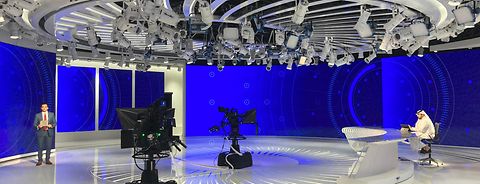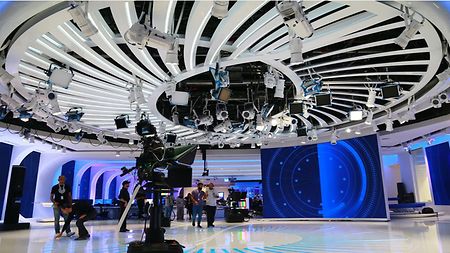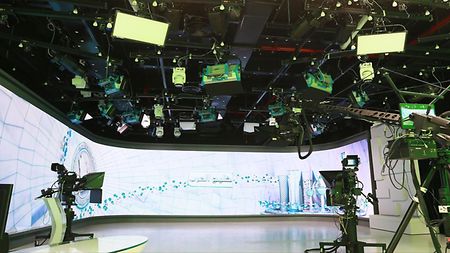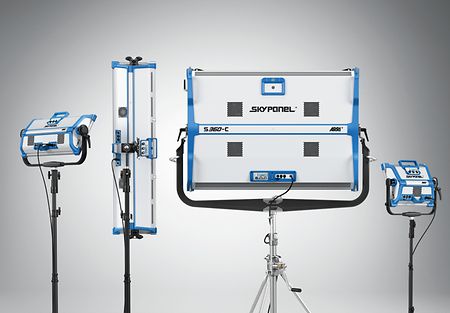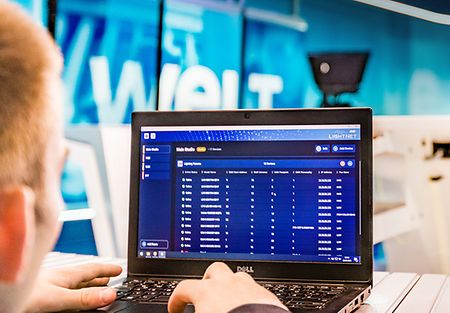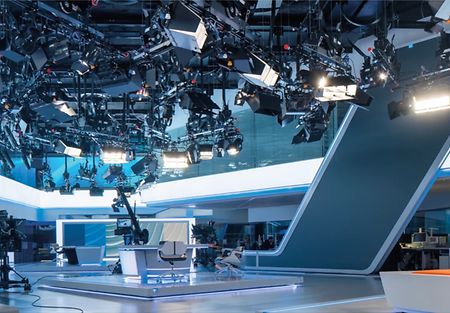Al Araby’s HQ move from London to Doha not only prompted a physical shift, but also a technical evolution, moving to a fully IP-based lighting system, the first in the Middle East region. To design and engineer the lighting network for perfect production conditions within the three studios that make up the new HQ at Lusail City, Doha, Al Araby relied on the experience of Ideal Systems Group and ARRI Solutions.
ARRI Solutions collaborated with Qatar-based lighting designer Sabri Mansouri, who consulted on the general commissioning of the studio’s lighting system, to put forward a recommendation of a fully IP-based lighting network for Al Araby’s new studios.
“The IP lighting network for Al Araby is only the second of its kind worldwide, and the first in the Middle East, so it was certainly a challenging project, due to its size and scale,” Sabri begins. “But it was clear from the outset that IP would be the only way to ensure the efficiency, reliability, and flexibility that Al Araby needed from its lighting system and collaborating closely with ARRI Solutions would be key to this project’s success.”

